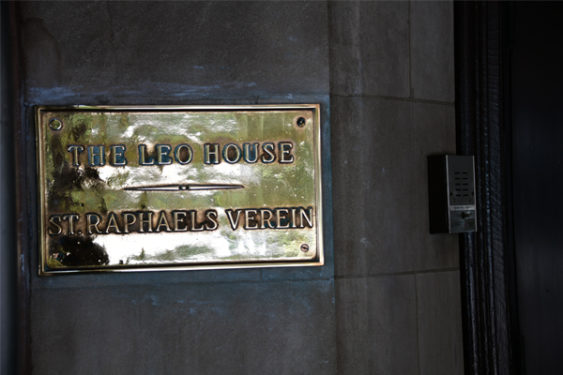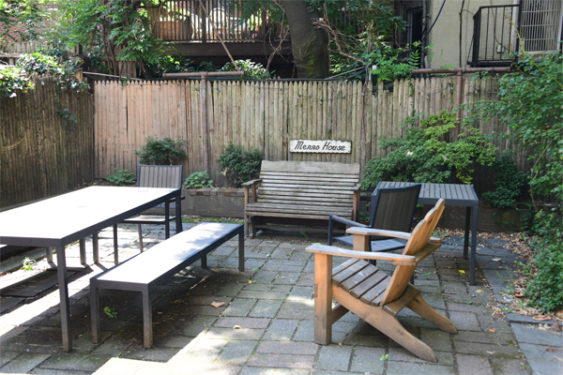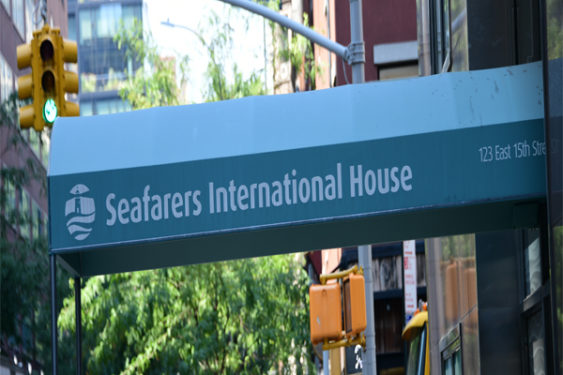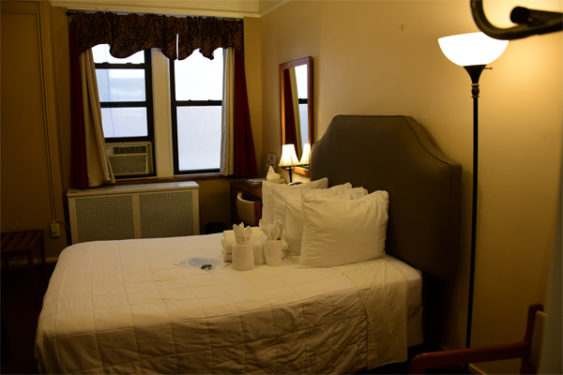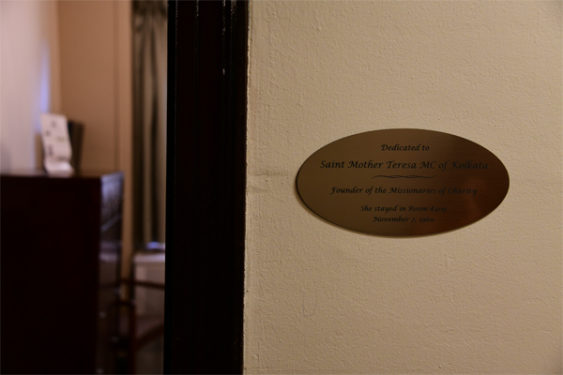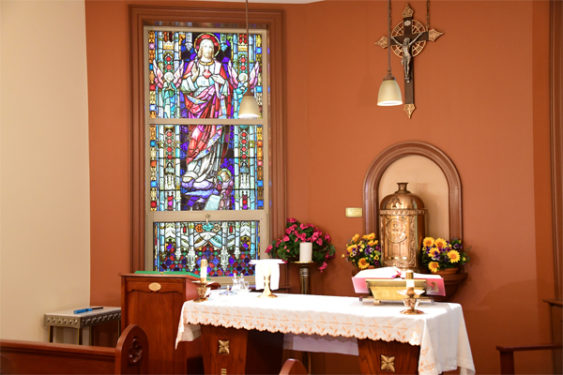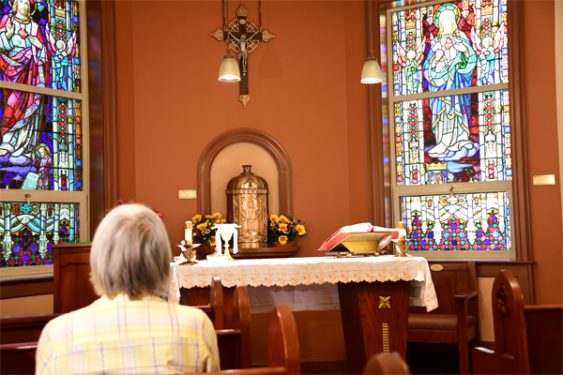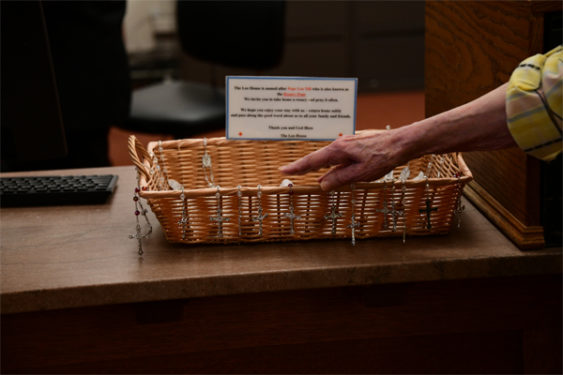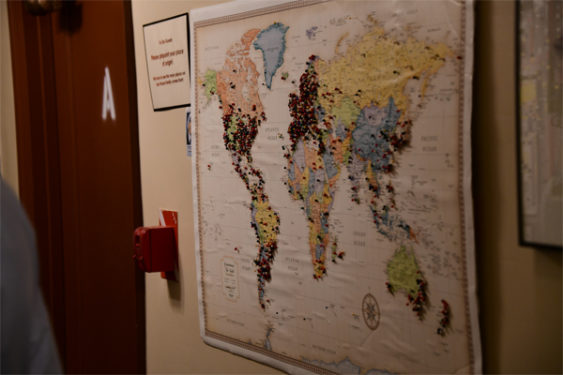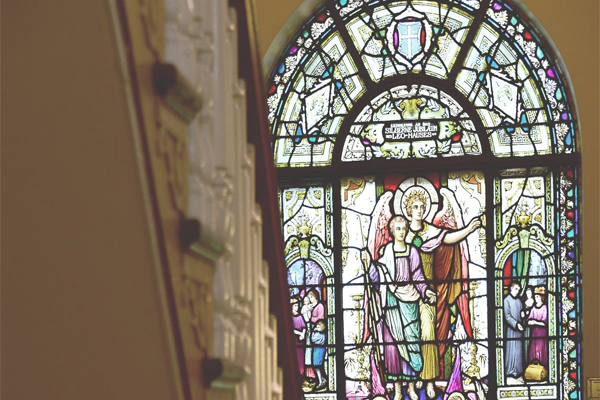
MANHATTAN — Tucked away on West 23rd Street in Manhattan is a guesthouse that offers Mass at 7 a.m. and a rosary group at 3 p.m. on most days.
The Leo House is one of several Christian “hotels” in New York City. Michael Coneys, its president, said the guesthouse gets about 40,000 customers a year from tourists to business travelers to those visiting sick friends or family.
The guesthouse harkens back to medieval Europe, where church buildings were among the safest places to stay for travelers, especially for families, Coneys said. He links The Leo House’s ministry to St. Benedict, whose Rule made hospitality a basic function of monastic life.
The Leo House, like many Christian lodgings across New York and the world, accepts all guests regardless of their religion or lack thereof.
Coneys said the guesthouse has “all the amenities of the Roman Catholic Church,” at the time he spoke of following the example of the Good Samaritan.
“The Good Samaritan didn’t care about whether the man he was treating was his own kind,” Coneys said. “We don’t either.”
The ministries of hospitality are located all around the world, and hundreds of them are in the United States. They offer affordable accommodations at convents, monasteries, sanctuaries, hotels, parish houses, campgrounds and hostels.
The secret is starting to get out. For example, Christian lodges draw 5.6 million tourists in Italy each year, according to the country’s National Institution of Statistics, including almost 60 percent from foreign countries.
One big drawing card: the price. At The Leo House, a standard single room costs $189 per night. That’s similar to prices at other hotels in the Chelsea neighborhood, except that as a not-for-profit organization, The Leo House doesn’t charge a sales tax.
The Leo House also offers steep discounts. Those visiting loved ones in hospitals or nursing homes can stay for $99 per night. Clergy and religious can book a room for $94 per night. And active military, police, fire and EMT personnel receive a 20 percent discount.
On staff, The Leo House has four nuns from the Congregation of Sisters of St. Agnes, the order that has helped run the guesthouse since its founding in 1889. One is Sister Marilyn Ellickson, C.S.A., the manager of fundraising and development.
“The mission of the Leo House is hospitality, and it is carried out because everyone is invited to stay here,” Sister Marilyn said. “We’ve had guests from all over the world, every religion, and people go away happy. They’re glad and they plan to come back.”
Jack and Marcia Kelly, who live on Manhattan’s Upper West Side, are one example of repeat customers to Christian guesthouses.
They have visited hundreds of such inns across the United States, and wrote a guidebook called “Sanctuaries” about the lodgings. The Kellys started a few decades ago when they made a cross-country trip to California to visit one of Jack’s friends.
On that trip, the Kellys stayed at numerous monasteries, abbeys and retreat houses, including Gethsemani Abbey in Kentucky, which is famous for being the monastery where Thomas Merton lived. Now, the couple seeks seclusion and peace from coast to coast.
“It’s like how some people go to church every week. We revisit some of our favorite places if they’re nearby where we’re going,” Jack Kelly said.
The lodgings offer a place to “just take a break and go somewhere where it’s just you and your prayers or thoughts and figure things out,” he said.
In Manhattan, other Christian lodgings include The Menno House in Gramercy Park, a ministry of the Manhattan Mennonite Fellowship. It has three rooms available and charges per person, at a rate of $90 per night for one person during peak season and an additional $40 for each person after that. The Evangelical Lutheran Church’s Seafarers International House in Union Square has rooms for as low as $94 per night for one person.
At The Leo House, Coneys said the rates cover the costs of operations and noted that grants from private charities and an annual gala each December help pay the bills.
“It’s a labor of love,” he said. “This has become the love of my life.”
Emily Drooby of Currents News contributed to this report.

